DevOps Observability: The Evolution of Logging, Monitoring and Metrics (Webinar)
4 MIN READ
Recently, we held a webinar where Chris Nguyen, LogDNA Co-Founder, and Norman Hsieh, our Head of Business Development talked about the ever increasing production of data, the shift from monitoring to observability, and the evolution of production infrastructure into multi-cloud. LogDNA is uniquely positioned to have enabled thousands of customers to gain deep insights into their evolving DevOps infrastructure. As the industry has shifted to microservices and Kubernetes we have helped our customers migrate and deploy world-class infrastructure.
DevOps Observability Highlights:
- DevOps teams are going to be busy for a while—the amount of data being generated is growing exponentially.
- Evolution of infrastructure started with virtualization with VMware in 1999, then the launch of AWS in 2006, then Docker and Kubernetes in 2014.
- Evolution of logging: In the past decade, the shift was from remote access log files to centralized logging. Modern day logging is a big data challenge. The problem is how to scale across containers, environments and clouds?
- As DevOps has evolved, monitoring requirements have shifted into what's called Observability, which is to answer three important questions at all times—Is the system healthy? If not, why not? And, where can we start debugging?
- The three Pillars of Observability are logging, metrics, and traces.
- Types of log management solutions: cloud, on-prem or private cloud, and multi-cloud.
- The reality is that company infrastructure is no longer homogeneous—it's often a mix of public cloud, private cloud, and on-prem.
- The shift to multi-cloud is happening because of changes in data governance rules, requirements for security and compliance by region and the cost of scaling.
- The future of logging is the ability to view your growing data across multiple regions and platforms in a centralized location that can be accessed by multiple teams.
- Log management is critical to the future of DevOps so when evaluating, be sure to look at business and technical requirements for security and compliance.
- Consider what you want to do with the data, how fast you need to be able to search your logs as your volume grows, how fast your business is growing, how you'll onboard new engineers as your teams grow, your retention needs, and your budget.
- Companies that take a proactive approach to growing their business know that the right log management partner is key to their success.
Contact us to chat about your multi-cloud logging needs.

The Grok-to-AI Evolution: Why Modern SREs Are Moving Beyond Manual Parsing

2026 Resolution: Take Back Control of Your Observability Spend
.png)
AI SRE Update: Your Feedback Shaped Our Latest Release

Your Easiest 2026 Resolution: Simplify the Collection Layer and Move to OTel Without the Agent Sprawl

New Year, New Telemetry: Resolve to Stop Breaking Dashboards
.jpg)
The Observability Stack is Collapsing: Why Context-First Data is the Only Path to AI-Powered Root Cause Analysis

Mezmo + Catchpoint deliver observability SREs can rely on
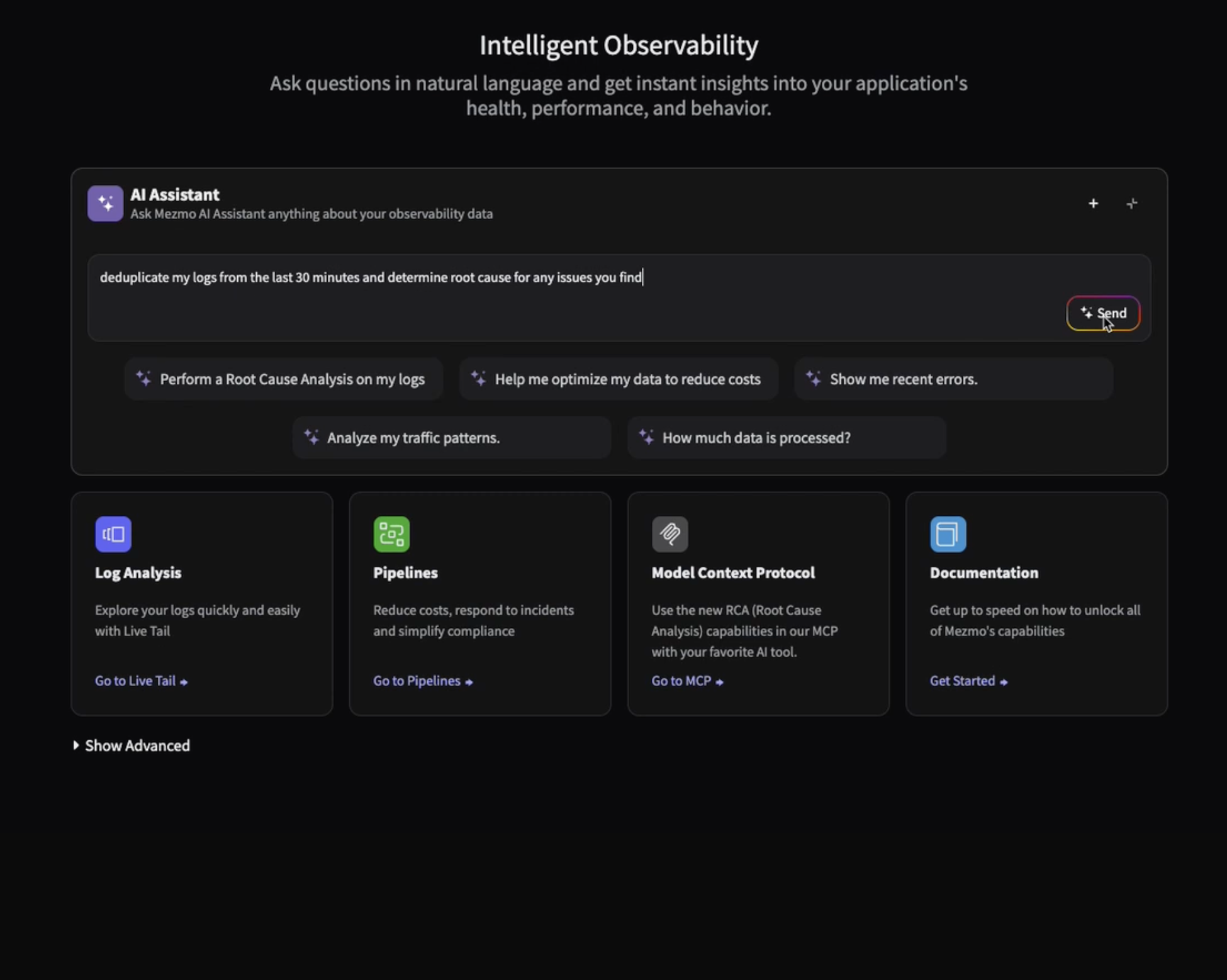
Mezmo’s AI-powered Site Reliability Engineering (SRE) agent for Root Cause Analysis (RCA)
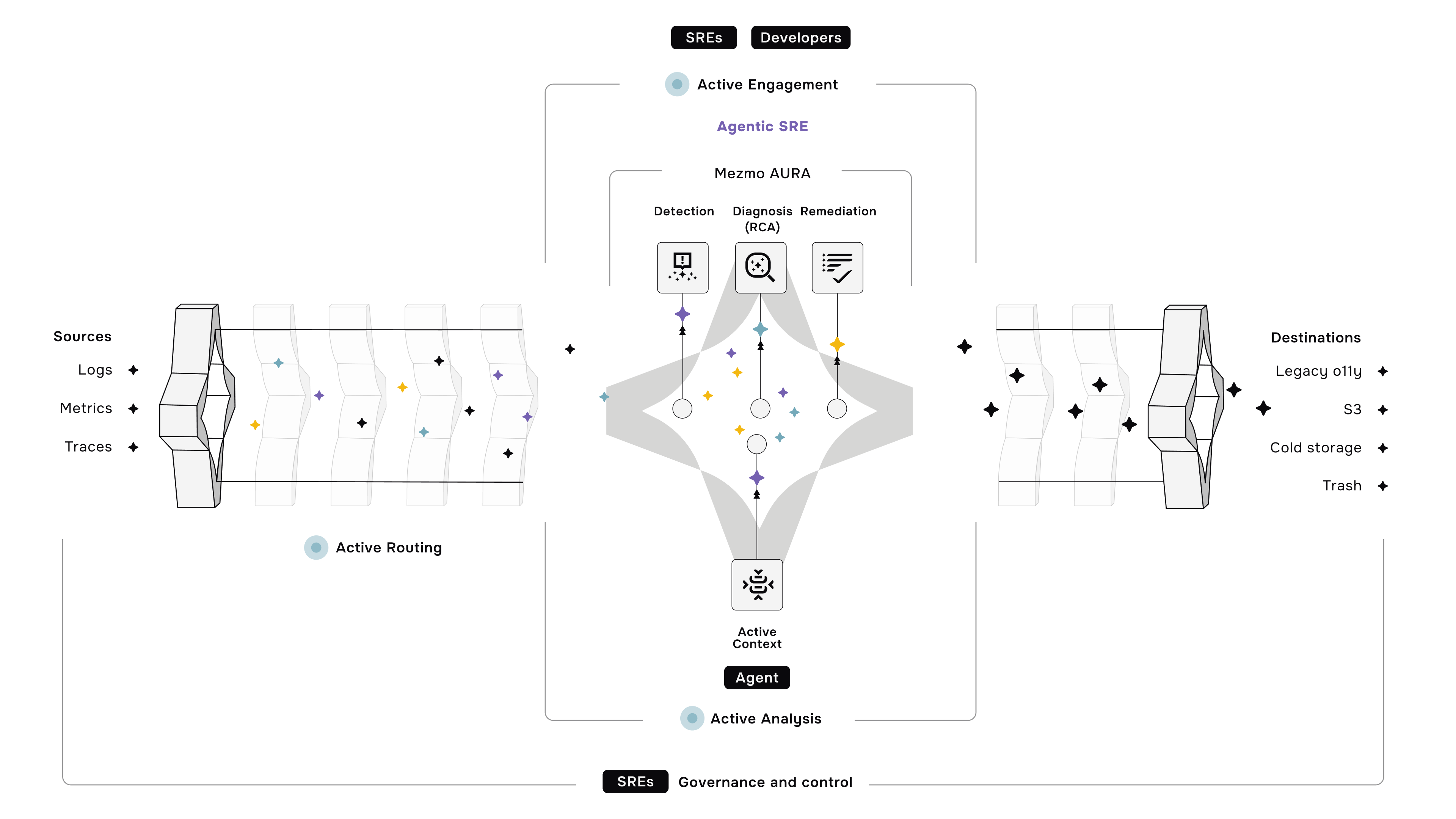
What is Active Telemetry

Launching an agentic SRE for root cause analysis

Paving the way for a new era: Mezmo's Active Telemetry

The Answer to SRE Agent Failures: Context Engineering

Empowering an MCP server with a telemetry pipeline

The Debugging Bottleneck: A Manual Log-Sifting Expedition

The Smartest Member of Your Developer Ecosystem: Introducing the Mezmo MCP Server
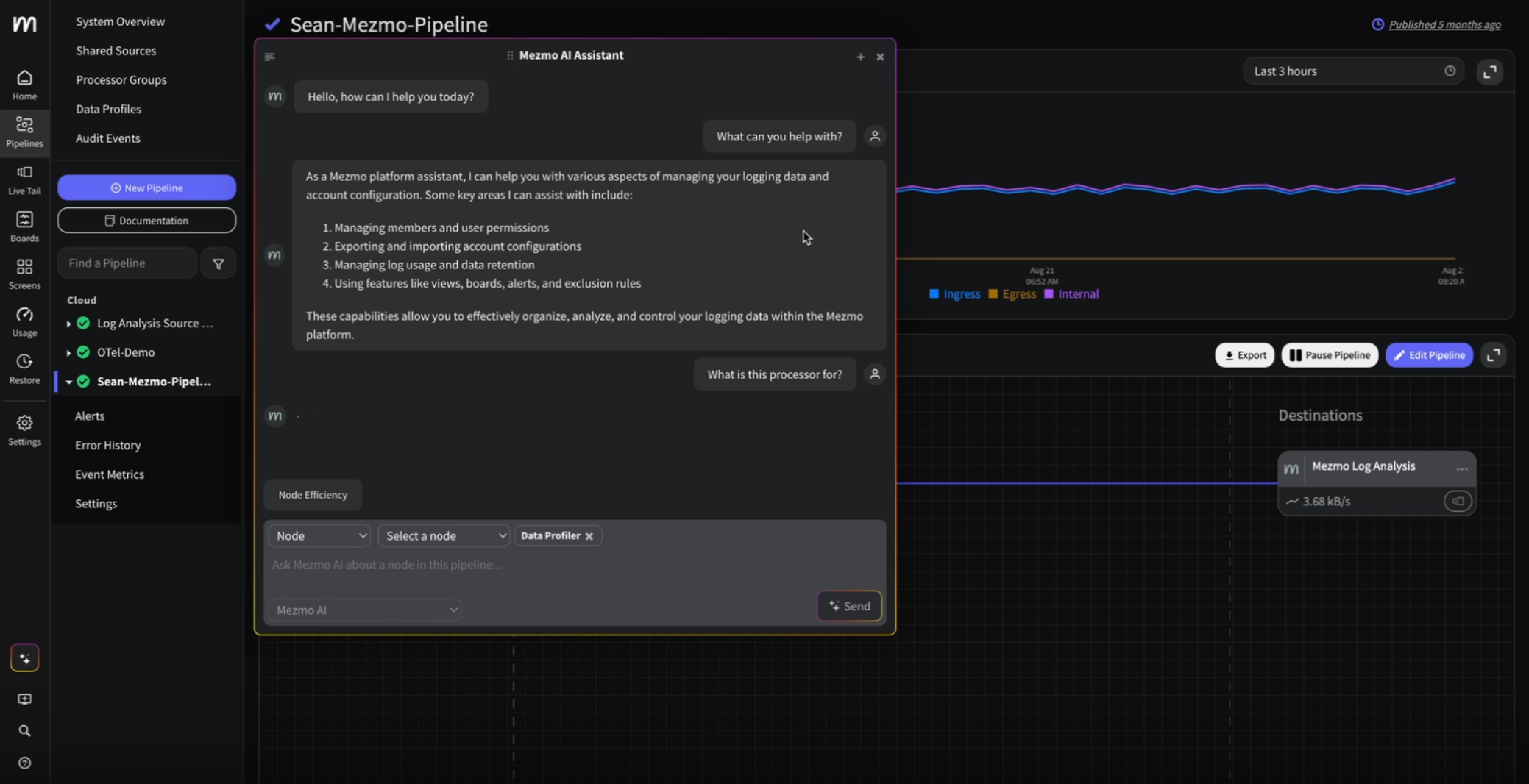
Your New AI Assistant for a Smarter Workflow

The Observability Problem Isn't Data Volume Anymore—It's Context

Beyond the Pipeline: Data Isn't Oil, It's Power.
.png)
The Platform Engineer's Playbook: Mastering OpenTelemetry & Compliance with Mezmo and Dynatrace

From Alert to Answer in Seconds: Accelerating Incident Response in Dynatrace

Taming Your Dynatrace Bill: How to Cut Observability Costs, Not Visibility

Architecting for Value: A Playbook for Sustainable Observability

How to Cut Observability Costs with Synthetic Monitoring and Responsive Pipelines
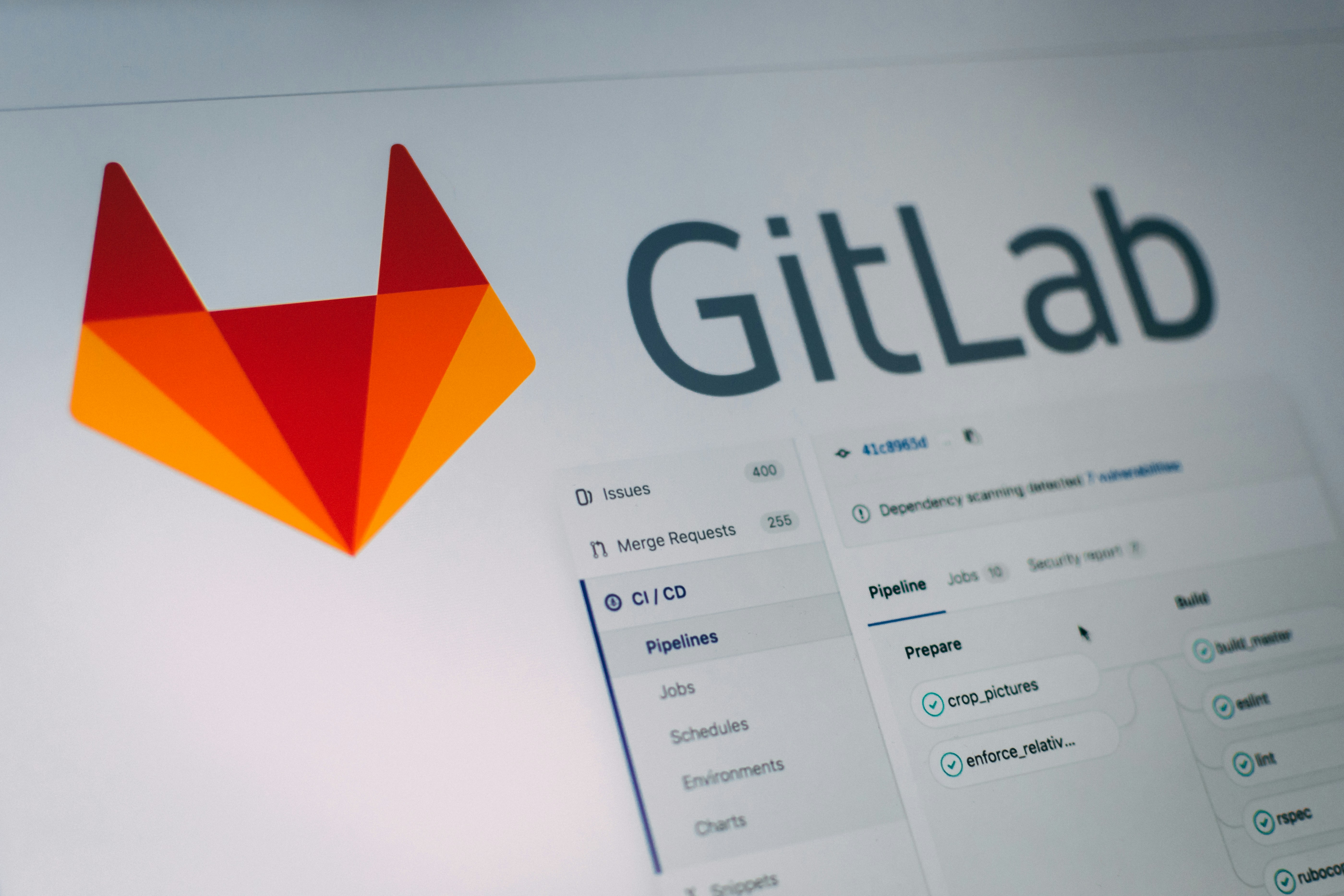
Unlock Deeper Insights: Introducing GitLab Event Integration with Mezmo
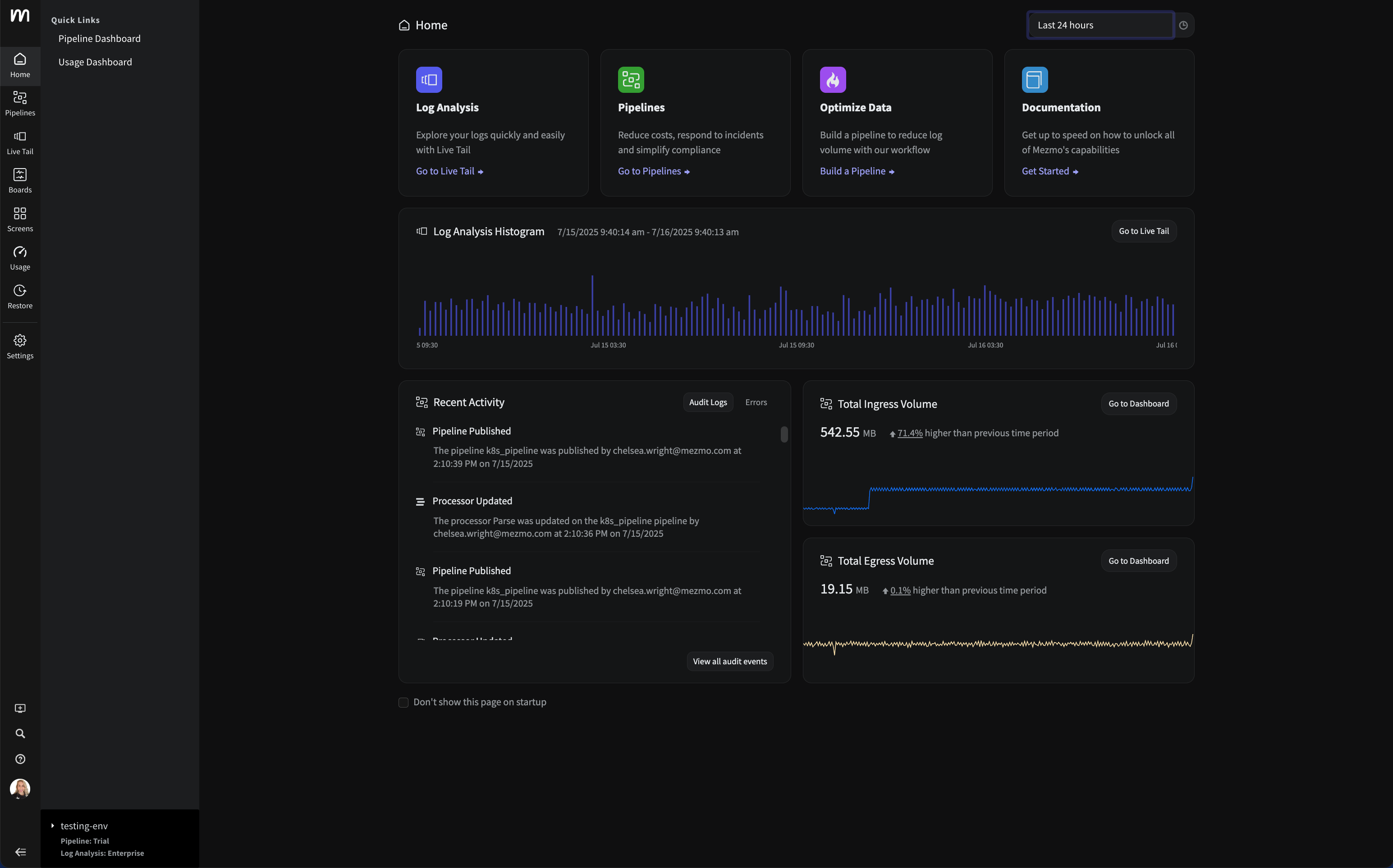
Introducing the New Mezmo Product Homepage

The Inconvenient Truth About AI Ethics in Observability

Observability's Moneyball Moment: How AI Is Changing the Game (Not Ending It)

Do you Grok It?

Top Five Reasons Telemetry Pipelines Should Be on Every Engineer’s Radar

Is It a Cup or a Pot? Helping You Pinpoint the Problem—and Sleep Through the Night

Smarter Telemetry Pipelines: The Key to Cutting Datadog Costs and Observability Chaos

Why Datadog Falls Short for Log Management and What to Do Instead

Telemetry for Modern Apps: Reducing MTTR with Smarter Signals

Transforming Observability: Simpler, Smarter, and More Affordable Data Control

Datadog: The Good, The Bad, The Costly

Mezmo Recognized with 25 G2 Awards for Spring 2025

Reducing Telemetry Toil with Rapid Pipelining

Cut Costs, Not Insights: A Practical Guide to Telemetry Data Optimization

Webinar Recap: Telemetry Pipeline 101

Petabyte Scale, Gigabyte Costs: Mezmo’s Evolution from ElasticSearch to Quickwit

2024 Recap - Highlights of Mezmo’s product enhancements

My Favorite Observability and DevOps Articles of 2024

AWS re:Invent ‘24: Generative AI Observability, Platform Engineering, and 99.9995% Availability
.png)
From Gartner IOCS 2024 Conference: AI, Observability Data, and Telemetry Pipelines

Our team’s learnings from Kubecon: Use Exemplars, Configuring OTel, and OTTL cookbook

How Mezmo Uses a Telemetry Pipeline to Handle Metrics, Part II

Webinar Recap: 2024 DORA Report: Accelerate State of DevOps

Kubecon ‘24 recap: Patent Trolls, OTel Lessons at Scale, and Principle Platform Abstractions

Announcing Mezmo Flow: Build a Telemetry Pipeline in 15 minutes

Key Takeaways from the 2024 DORA Report

Webinar Recap | Telemetry Data Management: Tales from the Trenches

What are SLOs/SLIs/SLAs?

Webinar Recap | Next Gen Log Management: Maximize Log Value with Telemetry Pipelines

Creating In-Stream Alerts for Telemetry Data

Creating Re-Usable Components for Telemetry Pipelines

Optimizing Data for Service Management Objective Monitoring

More Value From Your Logs: Next Generation Log Management from Mezmo

A Day in the Life of a Mezmo SRE

Webinar Recap: Applying a Data Engineering Approach to Telemetry Data

Dogfooding at Mezmo: How we used telemetry pipeline to reduce data volume

Unlocking Business Insights with Telemetry Pipelines

Why Your Telemetry (Observability) Pipelines Need to be Responsive

How Data Profiling Can Reduce Burnout

Data Optimization Technique: Route Data to Specialized Processing Chains

Data Privacy Takeaways from Gartner Security & Risk Summit

Mastering Telemetry Pipelines: Driving Compliance and Data Optimization

A Recap of Gartner Security and Risk Summit: GenAI, Augmented Cybersecurity, Burnout

Why Telemetry Pipelines Should Be A Part Of Your Compliance Strategy

Pipeline Module: Event to Metric

Telemetry Data Compliance Module

OpenTelemetry: The Key To Unified Telemetry Data

Data optimization technique: convert events to metrics

What’s New With Mezmo: In-stream Alerting

How Mezmo Used Telemetry Pipeline to Handle Metrics

Webinar Recap: Mastering Telemetry Pipelines - A DevOps Lifecycle Approach to Data Management

Open-source Telemetry Pipelines: An Overview

SRECon Recap: Product Reliability, Burn Out, and more

Webinar Recap: How to Manage Telemetry Data with Confidence

Webinar Recap: Myths and Realities in Telemetry Data Handling

Using Vector to Build a Telemetry Pipeline Solution

Managing Telemetry Data Overflow in Kubernetes with Resource Quotas and Limits

How To Optimize Telemetry Pipelines For Better Observability and Security

Gartner IOCS Conference Recap: Monitoring and Observing Environments with Telemetry Pipelines

AWS re:Invent 2023 highlights: Observability at Stripe, Capital One, and McDonald’s

Webinar Recap: Best Practices for Observability Pipelines

Introducing Responsive Pipelines from Mezmo

My First KubeCon - Tales of the K8’s community, DE&I, sustainability, and OTel

Modernize Telemetry Pipeline Management with Mezmo Pipeline as Code

How To Profile and Optimize Telemetry Data: A Deep Dive

Kubernetes Telemetry Data Optimization in Five Steps with Mezmo

Introducing Mezmo Edge: A Secure Approach To Telemetry Data

Understand Kubernetes Telemetry Data Immediately With Mezmo’s Welcome Pipeline

Unearthing Gold: Deriving Metrics from Logs with Mezmo Telemetry Pipeline

Webinar Recap: The Single Pane of Glass Myth

Empower Observability Engineers: Enhance Engineering With Mezmo

Webinar Recap: How to Get More Out of Your Log Data

Unraveling the Log Data Explosion: New Market Research Shows Trends and Challenges

Webinar Recap: Unlocking the Full Value of Telemetry Data

Data-Driven Decision Making: Leveraging Metrics and Logs-to-Metrics Processors

How To Configure The Mezmo Telemetry Pipeline





